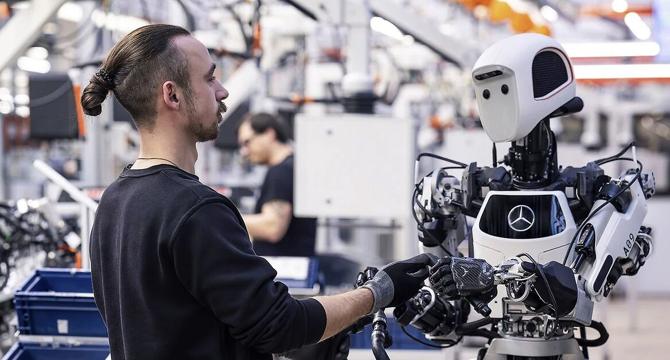The Truth About Cars
2d
176

Image Credit: The Truth About Cars
How Close Are Humanoid Robots to Replacing Auto Workers?
- The automotive industry is exploring the use of humanoid robots to potentially replace human workers on the assembly line.
- Although automation in manufacturing has led to concerns about job security, some argue that it has not significantly reduced overall employment.
- Businesses are inclined towards automation to cut costs, but robots may entail high initial costs and maintenance expenses compared to human labor.
- As the automotive sector faces labor shortages and rising costs, companies are turning to automation and robots to streamline operations.
- Robotics technology, including humanoid robots resembling humans, is being tested by automakers to potentially take on assembly line tasks.
- Major automakers like Audi, BMW, and Mercedes are experimenting with humanoid robots for various manufacturing processes.
- The industry is shifting towards automation and AI to optimize production processes and remain competitive in the market.
- Most tasks assigned to humanoid robots currently seem basic, leading to skepticism about their ability to truly replace human workers.
- There is a perceived over-hyping of robotic technology, with concerns about capabilities and practicality overshadowing potential benefits.
- Battery power, weight limitations, and energy efficiency remain challenges for humanoid robots in replacing human workers effectively.
Read Full Article
10 Likes
For uninterrupted reading, download the app